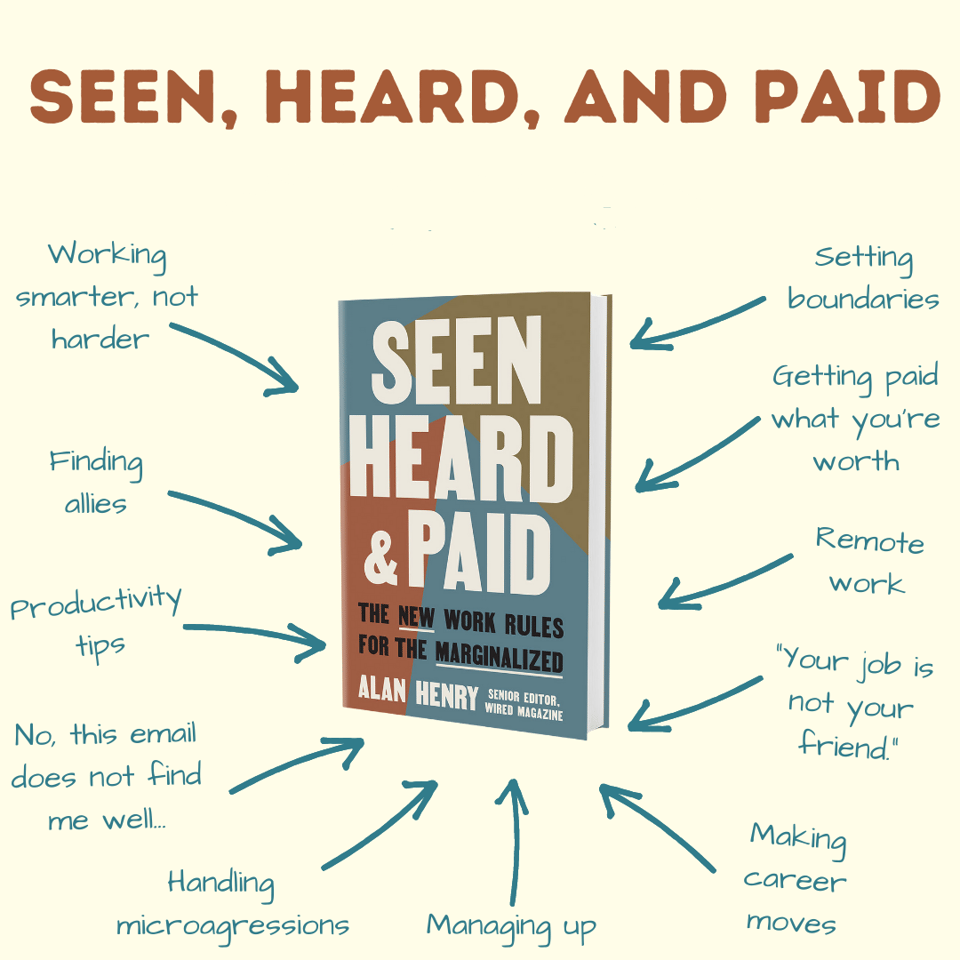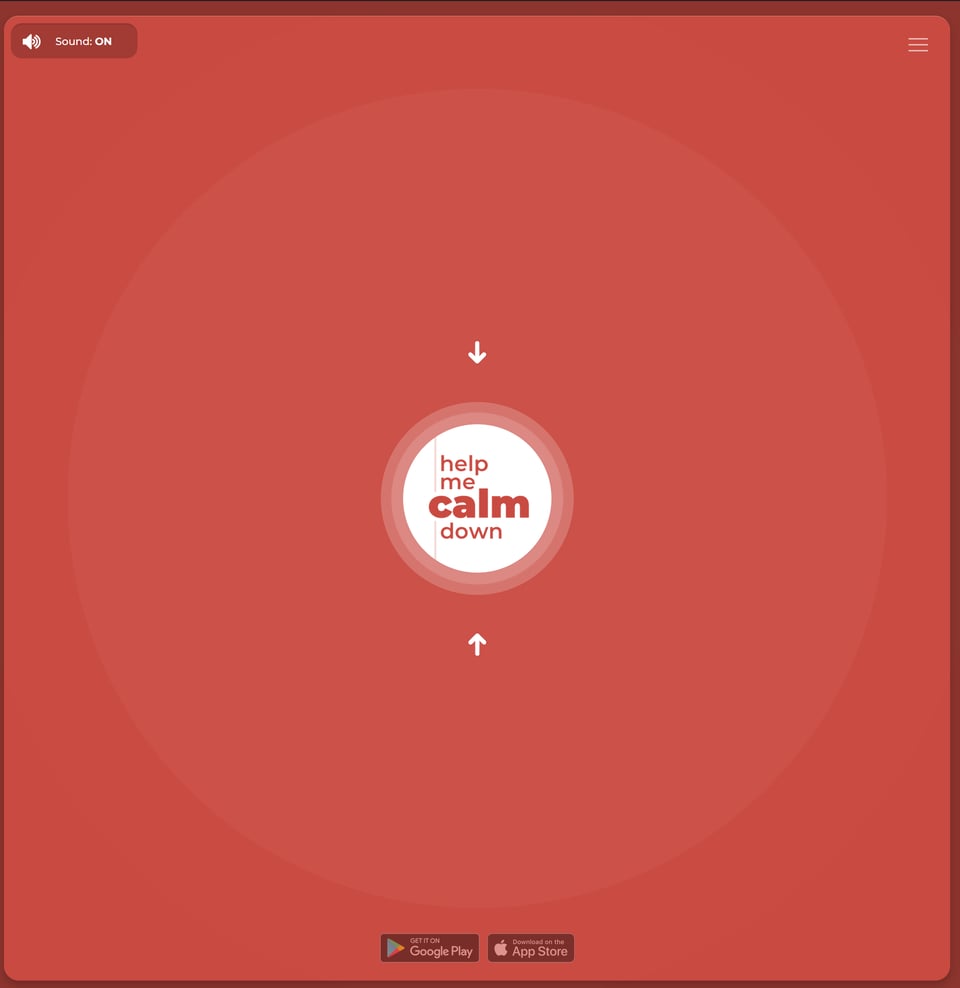They Not Like Us

I was strongly tempted to title this newsletter “Kendrick Lamar convinced me to quit my job,” but I think I’ll let his lyrics speak for themselves. Besides, I’m sure virtually everyone reading this gets the reference, but if not, here you go. Consider it your background music for this edition of Productivity, Without Privilege. I’m Alan Henry, your host for this newsletter, and author of Seen, Heard, and Paid: The New Work Rules for the Marginalized.
So let’s jump right into it, shall we? Inspired by Kendrick, this past month has been a whirlwind for me! If you don’t follow me on Twitter, Instagram, or Bluesky (which you should, but you do you) you may have missed it, but I’m changing jobs. This decision was actually months in the making, but it was this past few that I decided to take the advice of the folks who have been supporting me this far and take my leave.
I discuss this in detail in Seen, Heard, and Paid, essentially what to do if all of the data you have, all of the evidence that proves you’re doing an amazing job, and the applause of your colleagues and coworkers isn’t enough to un-toxify your work.
In short, pack your things and go. Remember, like I said in the last newsletter, which turned out to be extremely spot on, that you deserve better than marginalization and minimization, and even if the place that initially saw that in you doesn’t see it anymore, other people will.
If you’re thinking “this is where Alan’s gonna tell us the real shit,” it’s not like that. I worked with some incredible people, many of whom are still there (although I think, just as a journalist of color I’m still reeling from the butchery of the layoffs at the end of 2023, and the way that credible, positive improvements in diversity and representation always seem to take a backseat in the wake of staff slashing because “priorities shifted,”) and I wish them all the best. That’s the thing about leaving a job—you leave behind some great people that you’ll truly miss.
But I will say that I absolutely knew I had made the right decision when I saw a particularly toxic bully chattering about watching the Breaking finals at the Olympics and feeling “secondhand embarrassment” at the scene. Meanwhile, the only thing that flew through my head was “Sis just say you anti-black and stop playin so we’re all clear on who you are.”
I mean, look at this and tell me you’re embarrassed. The only thing embarrassing about Breaking at the Olympics was Australia’s showing, but that’s a whole other conversation about being so detached from a culture that you have to “study” it to appoint yourself an expert (she’s a Ph.D!), but that’s neither here nor there.
The point is, remember what Maya told us: when someone shows you who they are, believe them the first time.
And remember, Kendrick said, Don’t tell no lies about me, I won’t tell no truths about you.
That leads me to the second book I’m working on, which I know at least some of you subscribed to hear more about. It’s still very early stage, but in short, I want to take a closer look at intersectionality, what happens when people of color abuse each other, and what to do about discrimination and marginalization when it’s sitting across the table and looks like you. More on that project as it comes together.
And beyond that, I wanted to talk a little bit about benevolence. Namely: The people who harm you do not deserve your benevolence.
Your cordiality, sure, if you see fit to offer it. Your respect? That’s earned, not given by title or position. So when you look at your relationships and you find yourself more fearful than grateful, when you’re more worried that standing up for yourself or doing the right thing is more likely to blow back at you in terms of retaliation than you are encouraged to do the right thing or speak the truth, well, you’re being held hostage.
Whether it’s at work, in your personal life, or even in your own head (let’s be real, when it comes to the worst people, the first thing they do is gaslight you into thinking either you’re the problem, or the problem doesn’t exist and it’s in your head, despite the evidence to the contrary,) you’re being held hostage. That’s how horrible people operate, and that’s how groups of mean people hold onto power and punish anyone they judge beneath them.
The question then becomes, are you willing to do what you need to do to be free?
I said yes, and I hope you can too, regardless of the situation you find yourself in. I’ll see you back here soon.
[Read This]
Creating Stability Is Just As Important as Managing Change, by Ashley Gooddall: A lifetime ago, I was a project manager, and because we rolled both jobs into the same job where I was, I was also de facto change manager. That meant that in addition to overseeing the projects and project timelines and overall project plan, I also had to make sure that the changes and tweaks that we implemented didn’t have a negative (or any unforeseen) impact on our existing systems. This taught me a lot about how to help people navigate through changes, especially when those changes are things like re-orgs and layoffs. When I was editor-in-chief of Lifehacker, the first thing I had to do was to circle the wagons and make sure my team was taken care of, even when I was on the way out the door.
And sadly, because no one teaches managers how to manage, the advice in this piece is likely news to a lot of people, even managers who pride themselves on being able to help calm an anxious team through a difficult period. In some ways, it’s a manager’s responsibility to build the kind of psychological security on their team that gives them the freedom to their work without worrying in and out about the things happening around them. Of course, that implies the manager themselves isn’t subject to those whims, and we all know that’s not usually the case, but it’s still their responsibility.
Why We Need More Therapists Of Color, by Kaia Findlay, Anita Rao, and Amanda Magnus: I’m very lucky to have a Black therapist—partially because I looked for him specifically, but also because he’s been with me through some pretty wild things, and all of our sessions are firmly rooted in the fact that we’re two Black people talking to each other and experiencing the world through the lens of that Blackness. I don’t have to explain to him how dangerous white silence is when you’re being marginalized. I don’t have to explain to him how angry I am when I hear about yet another Black man murdered by police. I don’t have to start by setting up the humanity of Black people in order to make him understand how important a story or a topic or a news event is, the way I have to at work, or in other spaces with predominantly white, privileged people.
But unfortunately, too many people don’t have access to mental health resources that look like them or share their lived experiences. This piece—an audio episode of Embodied from WUNC—dives into the issue, touches on why there are so few therapists of color, and how we can encourage more people to get into the profession. The lessons here also ring trouble in journalism, my own industry.
How the Montgomery Riverfront brawl sparked an unofficial holiday, by Janay Kingsberry: This is just a little lighter fare for anyone who happens to remember that glorious moment a year ago when a group of Black people said they had enough of being treated poorly by their racist neighbors. Was it a brawl? I wouldn’t really call it that. I’d refer to it as “fuck around, find out,” one of my personal favorite mottos. And a beautiful reminder that ain’t nobody got us but us. And by “us” I mean right-minded people who recognize the power in community and the power in supporting each other, over the disgusting visage of hate that seems to be too boldly presenting itself in all of our spaces these days.
And it’s become an unofficial holiday! What better time to redidicate yourself to supporting the marginalized people around you and in your life—because like I say every time I do any public speaking, marginalization comes for all of us at some point. Only the privileged are exempt, and even then.
[Try This]

It’s been a while since I stumbled on a webapp or utility that I felt was really, surprisingly useful in the moment, and Help Me Calm Down has actually been really helpful. It’s pretty simple, just hit the big button in the middle of the screen and the page will slowly change color, play a few gentle tones, and guide you through a series of breathing exercises to help you calm yourself, lower your heart rate or blood pressure, and re-center yourself.
As somoene with anxiety, who often finds themselves wither struggling with their own thoughts and spiraling into “I shoulds” and “what if Is” and “I should haves,” breathing exercises like these really do help me calm myself down so I can think more clearly, set the things that are making me anxious to the side, and reaffirm my belief in myself and my ability to tackle the challenges I’m confronted with. But all of those things come first with giving myself some mental and emotional peace, and things like this can really help.
After the breathing exercises, Help Me Calm Down helps you check in with yourself a bit, understand exactly how you’re feeling, and identify exactly what those feelings are. After that, you continue that check in, identifying exactly what’s making you feel the way that you do. From there, you use additional breathing exercises to think about what’s making you feel the way that you do, and then allowing yourself to let those feelings go, at least metaphorically. You’re giving those feelings space, but you’re also thinking about the triggers that make you feel a certain way—best of all, you do it with positive emotions too. You give them space, and yourself some peace.
Oh, and yes, there are mobile apps for it as well, for both iOS and Android, but the webapp works just as well on your phone as the app does, maybe better. Try it out for yourself.